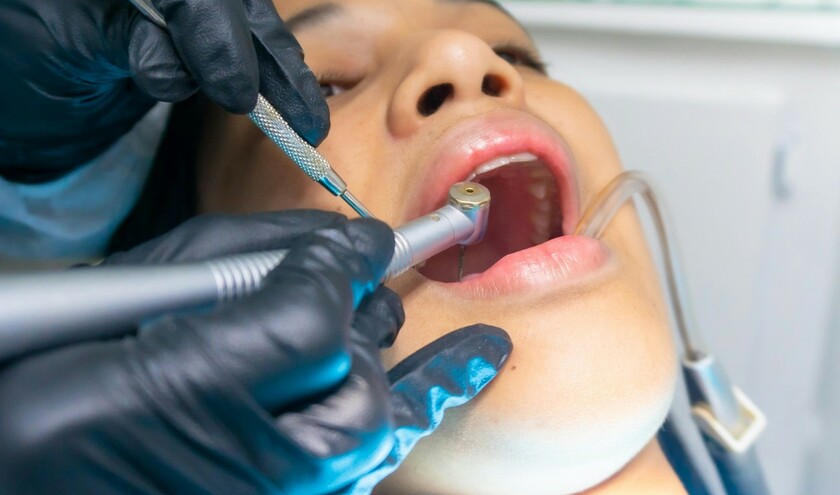The Public Accounts Committee (PAC) warns that there is no future for NHS dentistry without action from Government to go further in supporting the dental workforce, as patients continue to suffer the effects of a lack of access to care.
The report finds that, at best, only around half of the English population could see an NHS dentist over a two-year period under current funding and contractual arrangements. Just 40% of adults saw an NHS dentist in the two years to March 2024, compared to 49% in the two years pre-pandemic.
The four initiatives of the DHSC and NHS England's February 2024 dental recovery plan, which the report finds was never actually ambitious enough to meet its stated aim of ensuring that everyone who needs to see an NHS dentist would be able to, have comprehensively failed:
- The New Patient Premium (NPP), in which practices received credits for each eligible new patient they saw, costing at least £88m, resulted in 3% fewer new patients seeing a dentist since the NPP was introduced in March 2024
- The ‘golden hello' recruitment scheme, with incentive payments of £20,000 for 240 dentists, attracted less than 20% of the expected 240 as of February 2025
- Mobile dental vans to deliver treatment in targeted communities – this was dropped, illustrative of a nationally-planned idea failing to address local issues
- Uplift to the minimum value of contractually agreed dental activity to £28, failed to deliver any identifiable improvements.
The PAC's report finds the current NHS dental contract is not fit for purpose. There were 34,520 dentists registered to provide dentistry in England in April 2023, but only 24,193 of these provided some NHS dental care in 2023-24. Without proper remuneration it is likely that even more will move exclusively to the private sector. In March 2024, there were more than 5,500 vacancies across the NHS dental profession with many of these going unfilled for over 180 days.
While scrutinising the issue, the PAC asked NHSE if it would be better to rip the contract up and start again. NHSE responded that this was exactly what they were going to do, and the PAC agrees with the DHSC when it says that fiddling around with the contract fails to address the real problem.
The report highlights that there are still no details on when there will be fundamental reform of the dental contract, what it will look like, and warns that further tweaks to existing arrangements will not be enough. The PAC is calling on NHSE and DHSC to be clear what the actual cost of delivering NHS dentistry is, without which any efforts at reform will fail to address fundamental issues around the affordability of NHS work. The PAC further calls on the Government to work with the entire dental profession and wider stakeholders to design and deliver short and long-term changes to prevent further decline of the service.
Sir Geoffrey Clifton-Brown, chair of the Committee, said: ‘It is time for big decisions. NHSE agreed that the current contract is not fit for purpose, and that it is time to rip up the aged contract through which dentists deliver their services, and start again. This was said over a month ago at the time of our public hearing, since when we have seen massive change, including the abolition of NHSE itself.
‘This gives the Government the opportunity to completely reconfigure the way the NHS is run. In particular, so that more resources can be devoted to the local health boards who commission dentistry services. At the same time, a new contract should be negotiated with dentists so that all in this country will have proper access to a NHS dentist for the treatment they need. Parliament, the dental profession and patients all now need to know, as a matter of urgency, what comes next.'
The PAC report makes a series of recommendations:
- DHSC and NHSE should set out in their Treasury Minute response what they believe a realistic timetable would be if a decision to replace the existing dental contract with a new one is taken by ministers. This should include how they will consult on reforms with stakeholders and the public.
- DHSC and NHSE should explain what steps can be taken to maintain patient access to dental services while a new contract is being negotiated.
- NHSE and DHSC should also set out what their vision is for improving preventative care and promoting good oral health, providing an update on any wider preventative oral healthcare work that NHSE and DHSC are considering to support oral health outcomes.
- DHSC and NHSE must publish their evaluation of the dental recovery plan and what was spent on it. They should write to the Committee as soon as is practical to confirm their final analysis of the plan's performance in 2024-25, including details of: how many additional treatments the plan as a whole delivered, for each of the four main initiatives a breakdown of what they individually achieved, the final amount spent on each initiative, and how far the performance in the 2024/25 plan can be continued into 25/26.
- In their Treasury Minute response to this report DHSC and NHSE should set out how they are strengthening their own analytical capabilities in dentistry, and explain what will change in practice as a result of dentistry being designated as 'business critical'.
- NHSE and DHSC must in their future plans for NHS dentistry:
a) clearly articulate how they will improve on previous efforts to co-ordinate between central and local initiatives.
b) explain how they intend to support ICBs to innovate within their commissioning powers, while holding them to account for improving dentistry in their areas.
c) explain how they intend to support ICBs where, contrary to Government initiatives to expand access to dental treatment, practises may be experiencing a reduction in funding for 25/26.
- DHSC and NHSE should commit in their Treasury Minute response to conducting and publishing analysis of the actual costs of providing NHS dental care as part of any future work on reforms to NHS dentistry, reflecting the full range of complexities of treatments that patients might need. This should include an explanation of how the current structure of payments to dentists, in terms of the range and complexity of treatment, has different impacts depending on the deprivation of the community served.
- In addition, the report says DHSC must:
a) publish its response to the consultation on a dental graduate 'tie-in'; and
b) set out what more the department and NHSE intend to do to address obstacles to attracting dental professionals to carry out NHS work and close the gap between it and private work. This response must include detail on what further work is planned on skills mix and ensuring that dental practices make best use of all members of the wider dental team. This should include an explanation of how all dental professional groups will be consulted on future reforms.
Reaction:
Cllr David Fothergill, Chairman of the Local Government Association's Community Wellbeing Board, said: ‘Communities face significant challenges with regard to NHS contractual arrangements and patient charges. There's a significant call from across the political spectrum for a rapid and radical reform of NHS dentistry, the way it's commissioned and provided.
‘We will not solve problems of decayed, missing and filled teeth by only improving access to dental services. Improving oral health and reducing oral health inequalities requires community-based oral health promotion programmes and a more prevention-focused dental service. In the Spending Review, councils need a real-terms increase in their Public Health Grant so they can provide vital oral health improvement programmes to prevent longer-term health problems.'
Sarah Walter, director of the NHS Confederation's Integrated Care Systems Network, said: ‘Integrated Care Systems share the government's commitment to improving access and services for patients, and particularly the focus on children, who can often end up in A&E when they can't get dental care. While good progress has been made, our members know that a lot more work is needed to take advantage of the opportunities to tackle health inequalities and keep patients out of hospital. Dentistry can form a vital part of neighbourhood health as part of moving more care into the community.
‘There is no quick fix for the dentistry sector, but the upcoming 10-Year Plan is an opportunity to set out how the sector can begin on the road to recovery.'
Nuffield Trust chief executive, Thea Stein, said: ‘We have a broken contract which doesn't pay dentists enough to deliver care even when there is money available, and which creates dental deserts across England. As the PAC notes, that needs to change fundamentally. If governments are not willing to put in the billions required to bring back dentistry for everyone, we also need a serious conversation about who should be first in line. That might mean a service which focuses most on bringing back services for those who cannot afford private dentistry, and vulnerable groups like children.'
Chair of the Health and Social Care Select Committee, Layla Moran, said: ‘The state of Britain's dental services has been known to be in crisis for several years. Much of what the Public Accounts Committee's report today says regarding the dental contract resonates with what our predecessor committee concluded in its 2023 report on dentistry. However, it is very concerning to hear that since our inquiry, the situation has not improved and actually appears to have worsened.'
Liberal Democrat Health and Social Care spokesperson, Helen Morgan, said: ‘The Conservative Party's beyond shameful neglect brought us to this point, but the Labour government has offered absolutely nothing in rectifying this disastrous situation.
‘Ministers have moved far too slowly in reforming the broken dental contract and bringing an end to dental deserts so everyone can get the care they need when they need it.'



